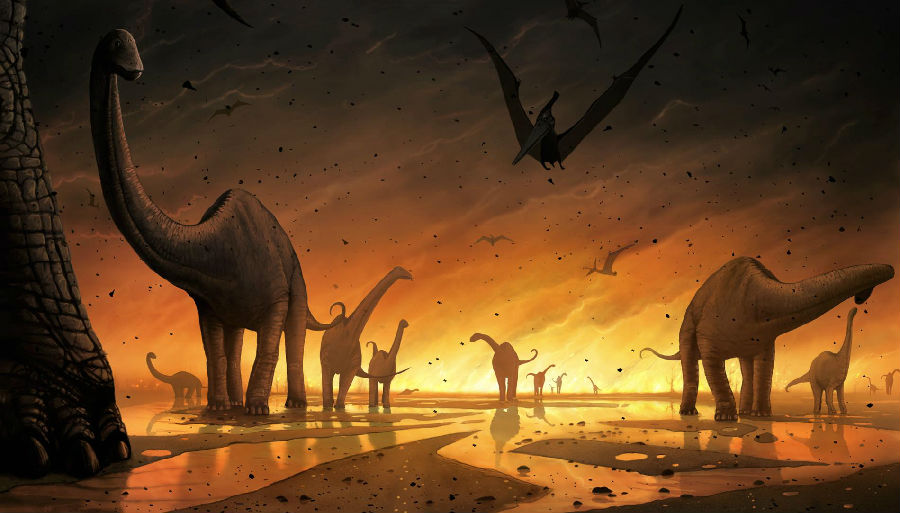The hills of north east Mexico are full of evidence of a mass murder, sixty five million years ago.
墨西哥東北部丘陵擁有發生在6500萬年前的這場大屠殺的許多證據。
It's a crime that for over a decade, scientists thought they had already solved.
十多年來,科學家們認為他們已經對這種滅絕作出了解答。
But then, a geology professor from Princeton discovered something that wasn't supposed to be there.
但是一位來自普林斯頓大學的地質學家發現了一些不應該在那里出現的東西。
When I first saw it I couldn't believe it,
當我第一次看到它時,簡直不敢相信自己的眼睛,
but then when it dawned on me what it really meant, I jumped up.
但當我漸漸明白這意味著什么的時候,我高興得跳了起來。
It was the most exciting Eureka moment, it changed the whole story.
這是最令人興奮的驚喜時刻,它改變了整個局面。

What Gerta Keller had found were just tiny balls of rock, but the implications were profound.
Gerta Keller發現的東西不過是一個很小的巖石群,但是其中的意義頗為深遠。
Then I realised that if I'm right, everyone else is wrong:
然后我意識到,如果我是對的,那么其它的理論就是錯的:
then science is wrong, about one of the biggest catastrophes in history.
科學是錯的,關于地球歷史中最大災難的學說也錯了。
Gerta Keller's claim was so shocking that it has sparked one of the bitterest scientific controversies of recent years.
Gerta Keller提出的理論震驚了世界,并引發了近年來最為激烈的一場科學辯論。
So when I think of Gerta Keller's so called evidence, it makes me sort of mad because none of it holds up.
我一想到Gerta Keller給出的所謂證據就氣得不行,因為它沒有一點站得住腳。
It's based on arguments which to my mind are barely scientific.
它是以辯論為基礎的,而這種辯論在我看來本身就不科學。











